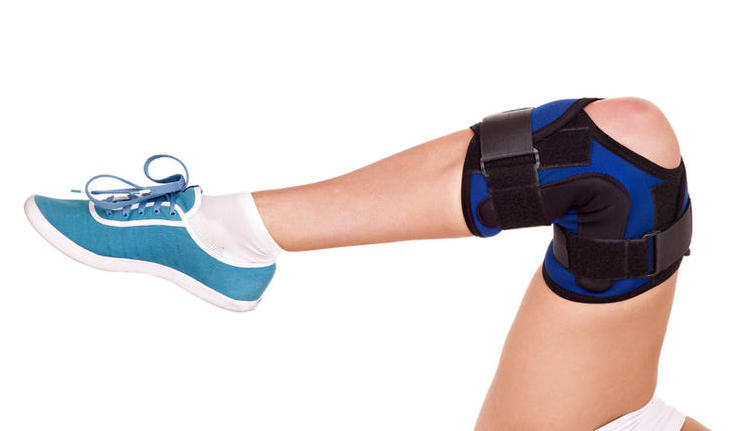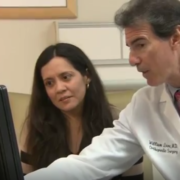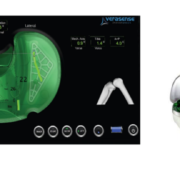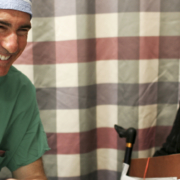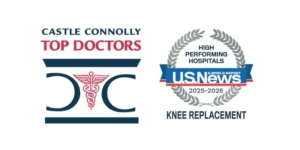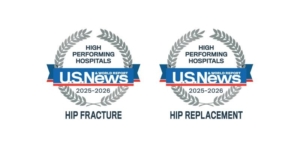Conservative Treatments to Delay Joint Replacement Surgery and Help Manage Pain
In September 2012, The Journal of the American Medical Association (JAMA) reported that total knee replacements in Medicare patients had risen by 162 percent over the past 20 years. In December 2012, The JAMA Forum — comprised of a team of journalists who provide daily news about developments in medicine — noted that the number of total knee and hip replacement surgeries is predicted to quadruple, reaching 4 million by 2040.
This increase in surgeries is due to many factors including increased longevity, technical advances in joint replacement surgeries and even the earlier onset of osteoarthritis due to the popularity of more routine and rigorous physical activity well into the golden years.
At The Leone Center for Orthopedic Care, I see patients with all kinds of complex hip and knee problems, many of whom do require surgery but only after all of the alternative and recommended non-invasive options fail to provide relief from symptoms and pain.
However, there are conservative and even preventative measures everyone can take to delay hip and knee replacement surgery and manage pain. All of the following treatments should be discussed thoroughly with your physician to make sure you choose the right course.
- Exercise and Physical Therapy
These often are the first line of defense because damaged joints actually can worsen with reduced activity. This creates a Catch 22 because it’s difficult to move when you are in pain; however, a regimen tailored to your specific condition can help restore function and ease pain. In addition, physical therapy can increase a joint’s range of motion and strength with specific exercises, the use of ice, massage, deep heat and nerve stimulation. In my practice, I repeatedly see some patients with very advanced arthritis who still are functioning well physically. Almost invariably, they have continued to stay active by learning how to exercise to keep the muscles that control their joints strong and flexible, without undo wear and tear.
- Weight Loss
Simply stated, our joints carry the weight of our bodies. The more weight, the harder our joints have to work. Even small changes in weight make a significant difference in the forces on both our hip and knee joints and potentially can reduce joint pain. For example, an extra 15 pounds of body weight feels like 45 pounds to the knees.
- Anti-inflammatory Drugs (NSAIDs)
There are many different NSAIDs available. The most commonly prescribed anti-inflammatory drugs are ibuprofen and naproxen. Both can help reduce pain and swelling caused by arthritis. Your doctor may prescribe a particular NSAID that delivers a larger dose or is taken less frequently. Long-term use of these drugs sometimes can cause undesired side effects. Unfortunately, all NSAIDs can create gastric (stomach) upset or even gastric bleeding. NSAIDs also can compromise renal (kidney) function and the blood’s ability to clot. If you take these medications on a regular basis, even those sold over the counter, it is extremely important that your doctor is aware and does periodic blood studies.
- Glucosamine and Chondroitin Supplements
Glucosamine and chondroitin occur naturally in the body. Glucosamine aids in the formation and repair of joint cartilage, while chondroitin helps to prevent other enzymes from breaking down joint cartilage. It has been reported that these supplements help relieve the pain of osteoarthritis without the side effects of NSAIDs.
- Viscosupplementation (injections)
Research indicates that some osteoarthritic joints have lower levels of hyaluronic acid, an acid found in the synovial fluid that acts as a joint lubricant. Some patients find relief from injections of hyaluronic acid that can last several months. However, it is not effective in all cases and does not stall the progression of arthritis.
- Corticosteroids
Corticosteroids, usually given by injection, provide anti-inflammatory effects which can significantly lessen joint pain. Long-term use is not recommended because they can cause further joint destruction as well as have other side effects, including suppression of the immune system, high blood sugar and loss of bone calcium.
- Bracing
In some cases, bracing can provide increased stability and relieve pressure on the joint, which eases pain.
While the cure-all has not yet been discovered to stop or reverse joint destruction, conservative treatments can delay surgery and most importantly, help manage pain.
We thank you for your readership. If you would like a personal consultation, please contact our office at 954-489-4575 or by email at LeoneCenter@Holy-cross.com.

